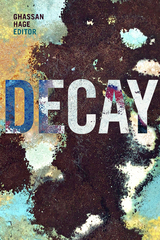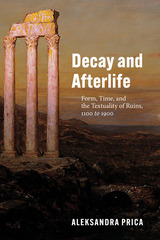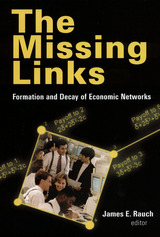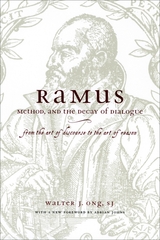5 books about Decay

Decay
Ghassan Hage, editor
Duke University Press, 2021
In eleven sharp essays, the contributors to Decay attend to the processes and experiences of symbolic and material decay in a variety of sociopolitical contexts across the globe. They examine decay in its myriad manifestations—biological, physical, organizational, moral, political, personal, and social and in numerous contexts, including colonialism and imperialism, governments and the state, racism, the environment, and infrastructure. The volume's topics are wide in scope, ranging from the discourse of social decay in contemporary Australian settler colonialism and the ways infrastructures both create and experience decay to cultural decay in the aftermath of the Sri Lankan civil war and the relations among individual, institutional, and societal decay in an American high-security prison. By using decay as a problematic and expounding its mechanisms, conditions, and temporalities, the contributors provide nuanced and rigorous means to more fully grapple with the exigencies of the current sociopolitical moment.
Contributors. Cameo Dalley, Peter D. Dwyer, Akhil Gupta, Ghassan Hage, Michael Herzfeld, Elise Klein, Bart Klem, Tamara Kohn, Michael Main, Fabio Mattioli, Debra McDougall, Monica Minnegal, Violeta Schubert
Contributors. Cameo Dalley, Peter D. Dwyer, Akhil Gupta, Ghassan Hage, Michael Herzfeld, Elise Klein, Bart Klem, Tamara Kohn, Michael Main, Fabio Mattioli, Debra McDougall, Monica Minnegal, Violeta Schubert
[more]

Decay and Afterlife
Form, Time, and the Textuality of Ruins, 1100 to 1900
Aleksandra Prica
University of Chicago Press, 2022
Covering 800 years of intellectual and literary history, Prica considers the textual forms of ruins.
Western ruins have long been understood as objects riddled with temporal contradictions, whether they appear in baroque poetry and drama, Romanticism’s nostalgic view of history, eighteenth-century paintings of classical subjects, or even recent photographic histories of the ruins of postindustrial Detroit. Decay and Afterlife pivots away from our immediate, visual fascination with ruins, focusing instead on the textuality of ruins in works about disintegration and survival. Combining an impressive array of literary, philosophical, and historiographical works both canonical and neglected, and encompassing Latin, Italian, French, German, and English sources, Aleksandra Prica addresses ruins as textual forms, examining them in their extraordinary geographical and temporal breadth, highlighting their variability and reflexivity, and uncovering new lines of aesthetic and intellectual affinity. Through close readings, she traverses eight hundred years of intellectual and literary history, from Seneca and Petrarch to Hegel, Goethe, and Georg Simmel. She tracks European discourses on ruins as they metamorphose over time, identifying surprising resemblances and resonances, ignored contrasts and tensions, as well as the shared apprehensions and ideas that come to light in the excavation of these discourses.
Western ruins have long been understood as objects riddled with temporal contradictions, whether they appear in baroque poetry and drama, Romanticism’s nostalgic view of history, eighteenth-century paintings of classical subjects, or even recent photographic histories of the ruins of postindustrial Detroit. Decay and Afterlife pivots away from our immediate, visual fascination with ruins, focusing instead on the textuality of ruins in works about disintegration and survival. Combining an impressive array of literary, philosophical, and historiographical works both canonical and neglected, and encompassing Latin, Italian, French, German, and English sources, Aleksandra Prica addresses ruins as textual forms, examining them in their extraordinary geographical and temporal breadth, highlighting their variability and reflexivity, and uncovering new lines of aesthetic and intellectual affinity. Through close readings, she traverses eight hundred years of intellectual and literary history, from Seneca and Petrarch to Hegel, Goethe, and Georg Simmel. She tracks European discourses on ruins as they metamorphose over time, identifying surprising resemblances and resonances, ignored contrasts and tensions, as well as the shared apprehensions and ideas that come to light in the excavation of these discourses.
[more]

The Missing Links
Formation and Decay of Economic Networks
James E. Rauch
Russell Sage Foundation, 2007
Half of all workers are hired through personal referrals, and networks of social connections channel the flows of capital, technology, and international trade. Sociologists and economists alike recognize that economic exchange is shaped by social networks, which propagate information and facilitate trust, but each discipline brings a distinct theoretical perspective to the study of networks. Sociologists have focused on how networks shape individual behavior, economists on how individual choices shape networks. The Missing Links is a bold effort by an interdisciplinary group of scholars to synthesize sociological and economic theories of how economic networks emerge and evolve. Interweaving sophisticated theoretical models and concrete case studies, The Missing Links is both an introduction to the study of economic networks and a catalyst for further research. Economists Rachel Kranton and Deborah Minehart illustrate their field's approach to modeling network formation, showing how manufacturers form networks of suppliers in ways that maximize profits. Exemplifying the sociological approach, Ronald Burt analyzes patterns of cooperation and peer evaluations among colleagues at a financial organization. He finds that dense connections of shared acquaintances lead to more stable reputations. In the latter half of the book, contributors combine the insights of sociology and economics to explore a series of case studies. Ray Reagans, Ezra Zuckerman, and Bill McEvily investigate an R & D firm in which employees participate in overlapping collaborative teams, allowing the authors to disentangle the effects of network structure and individual human capital on team performance. Kaivan Munshi and Mark Rosenzweig examine how economic development and rising inequality in India are reshaping caste-based networks of mutual insurance and job referrals. Their study shows that people's economic decisions today are shaped both by the legacy of the caste hierarchies and by the particular incentives and constraints that each individual faces in an evolving labor market. Economic globalization is forging new connections between people in distant corners of the world, while unsettling long-standing social relations. Anyone interested in understanding the opportunities and challenges of this era of rapid change will find a highly informative guide in The Missing Links.
[more]

Ramus, Method and Decay of Dialogue
From the Art of Discourse to the Art of Reason
Walter S.J.Ong
Harvard University Press

Ramus, Method, and the Decay of Dialogue
From the Art of Discourse to the Art of Reason
Walter J. Ong, S.J.
University of Chicago Press, 2004
Renaissance logician, philosopher, humanist, and teacher, Peter Ramus (1515-72) is best known for his attack on Aristotelian logic, his radical pedagogical theories, and his new interpretation for the canon of rhetoric. His work, published in Latin and translated into many languages, has influenced the study of Renaissance literature, rhetoric, education, logic, and—more recently—media studies.
Considered the most important work of Walter Ong's career, Ramus, Method, and the Decay of Dialogue is an elegant review of the history of Ramist scholarship and Ramus's quarrels with Aristotle. A key influence on Marshall McLuhan, with whom Ong enjoys the status of honorary guru among technophiles, this challenging study remains the most detailed account of Ramus's method ever published. Out of print for more than a decade, this book—with a new foreword by Adrian Johns—is a canonical text for enthusiasts of media, Renaissance literature, and intellectual history.
Considered the most important work of Walter Ong's career, Ramus, Method, and the Decay of Dialogue is an elegant review of the history of Ramist scholarship and Ramus's quarrels with Aristotle. A key influence on Marshall McLuhan, with whom Ong enjoys the status of honorary guru among technophiles, this challenging study remains the most detailed account of Ramus's method ever published. Out of print for more than a decade, this book—with a new foreword by Adrian Johns—is a canonical text for enthusiasts of media, Renaissance literature, and intellectual history.
[more]
READERS
Browse our collection.
PUBLISHERS
See BiblioVault's publisher services.
STUDENT SERVICES
Files for college accessibility offices.
UChicago Accessibility Resources
home | accessibility | search | about | contact us
BiblioVault ® 2001 - 2024
The University of Chicago Press









